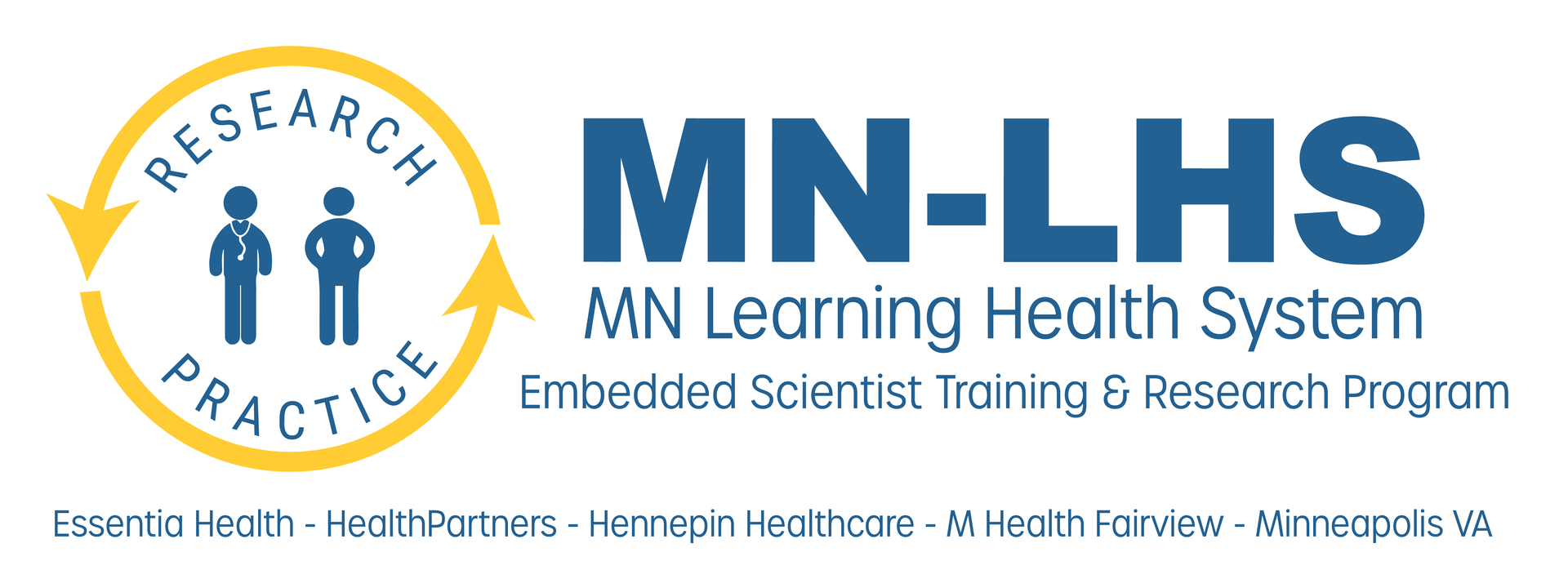Minnesota Learning Health System Career Development Program

Since 2018, the Minnesota Learning Health System Career Development Program (MN-LHS) has trained and mentored scientists to conduct embedded patient-centered research to improve health care.
The key objective of MN-LHS is to enable Minnesota as a learning health system (LHS) by building a robust workforce with LHS competencies, real world experience, and a support network to be successful. The MN-LHS program operates as a collaborative with five hub sites (core partner clinical sites) including: M Health Fairview, Essentia Health, HealthPartners, Hennepin Healthcare, and Minneapolis VA. MN-LHS receives support through:
- AHRQ/PCORI P30 Learning Health System Embedded Scientist Training and Research (LHS E-STaR) grant (LEaRN: LHS E-STaR of the North, P30HS029744) (2024-8)
- Internal UMN support of Office of Academic Clinical Affairs (OACA), Clinical Translational Science Institute (CTSI), and CLHSS (a collaboration between the Medical School and School of Public Health)
- MN-LHS hub (partner clinical) sites
Recognizing the need to diversify training opportunities to meet the needs of individuals at various stages of professional development and career paths, the MN-LHS now has additional scholar track options, including:
- MN-LHS Scholars: Early scientist / faculty career development
- MN-LHS Fellows: Postdoctoral trainees and predoctoral trainees with dedicated LHS research or integrated training programs
- MN-LHS Internships: Intensive 1-3 month programming for exposure to LHS competencies, geared mainly for clinical trainees
The MN-LHS program was initially supported by the Agency for Healthcare Research and Quality (AHRQ) and Patient-Centered Outcomes Research Institute (PCORI) as a K12 Institutional Mentor Career Development Program (2018-23). The collaborative under this initial funding mechanism included the University of Minnesota, M Health Fairview, Mayo Clinic, Hennepin Healthcare, and Minneapolis VA, and several other partner sites. Importantly, MN-LHS scholars have also been generously supported internally by OACA, CTSI, and CLHSS.
We are thrilled to announce that the MN-LHS program recently received funding from AHRQ and PCORI!
Learn more about how this award will allow us to expand our program.